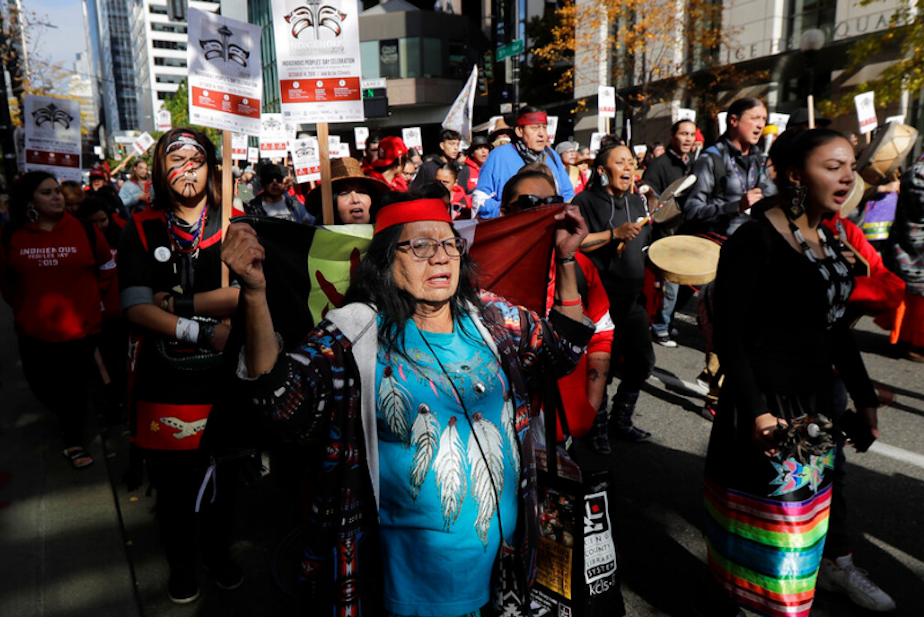Push to replace Columbus Day with Indigenous Peoples' Day continues in Congress

The effort to replace Columbus Day with Indigenous Peoples' Day at the federal level continues, with help from a Washington lawmaker.
“Indigenous Peoples’ Day is an opportunity for us to unite in celebration of the rich tapestry of tribal nations, their diverse cultures, and the important contributions they have made to our communities,” said Suzan DelBene, a Washington Democrat who represents the 1st Congressional District and is a co-sponsor of the bill. “Cementing this observance also acknowledges the current and historical injustices Indigenous communities face and renews our commitment to preserving their rights as we work toward a more inclusive and equitable society.”
RELATED: Which Indigenous lands are you on? This map will show you
The Indigenous Peoples’ Day Act would switch out the federal holiday Columbus Day and replace it with Indigenous Peoples' Day on the second Monday of October. DelBene is among 56 House sponsors and 11 Senate sponsors, including Oregon Rep. Suzanne Bonamici.
This is not the first time these lawmakers have pushed for the holiday change. They first introduced legislation to change Columbus Day to Indigenous People's Day in 2019.
There have been various observances of Columbus Day throughout United States' history, but it didn't become an official federal holiday until legislation was passed in 1968. The first federal observance was in 1971.
Sponsored
RELATED: Indigenous Peoples' Day is only a start, Swinomish chairman says
Momentum for an official Indigenous Peoples' Day in place of Columbus Day has been growing for decades. As many as 20 states celebrate the holiday in place of Columbus Day. In 1988, Hawaii began a version of it called "Discoverers' Day" honoring Polynesian discoverers of the Hawaiian islands. South Dakota began celebrating Native American Day on the second Monday of October in 1989. Oregon passed legislation in 2021 making Indigenous Peoples' Day official. President Biden was the first U.S. president to acknowledge the day in 2021.
Spokane officially recognized the holiday starting in 2016, and Yakima started in 2017. Seattle has recognized the day in the past, but the first time it was celebrated as an official city holiday was in 2022.
At the time, Mayor Bruce Harrell and Councilmember Debora Juarez released a joint statement:
"Our city is indelibly connected to Indigenous Peoples. Seattle was named after Chief Si’ahl (also known as Chief Sealth) of the Duwamish and Suquamish tribes and was built on the lands of the Coast Salish people who occupied them since time immemorial. But it is up to each of us to make these connections more than historical artifacts."

